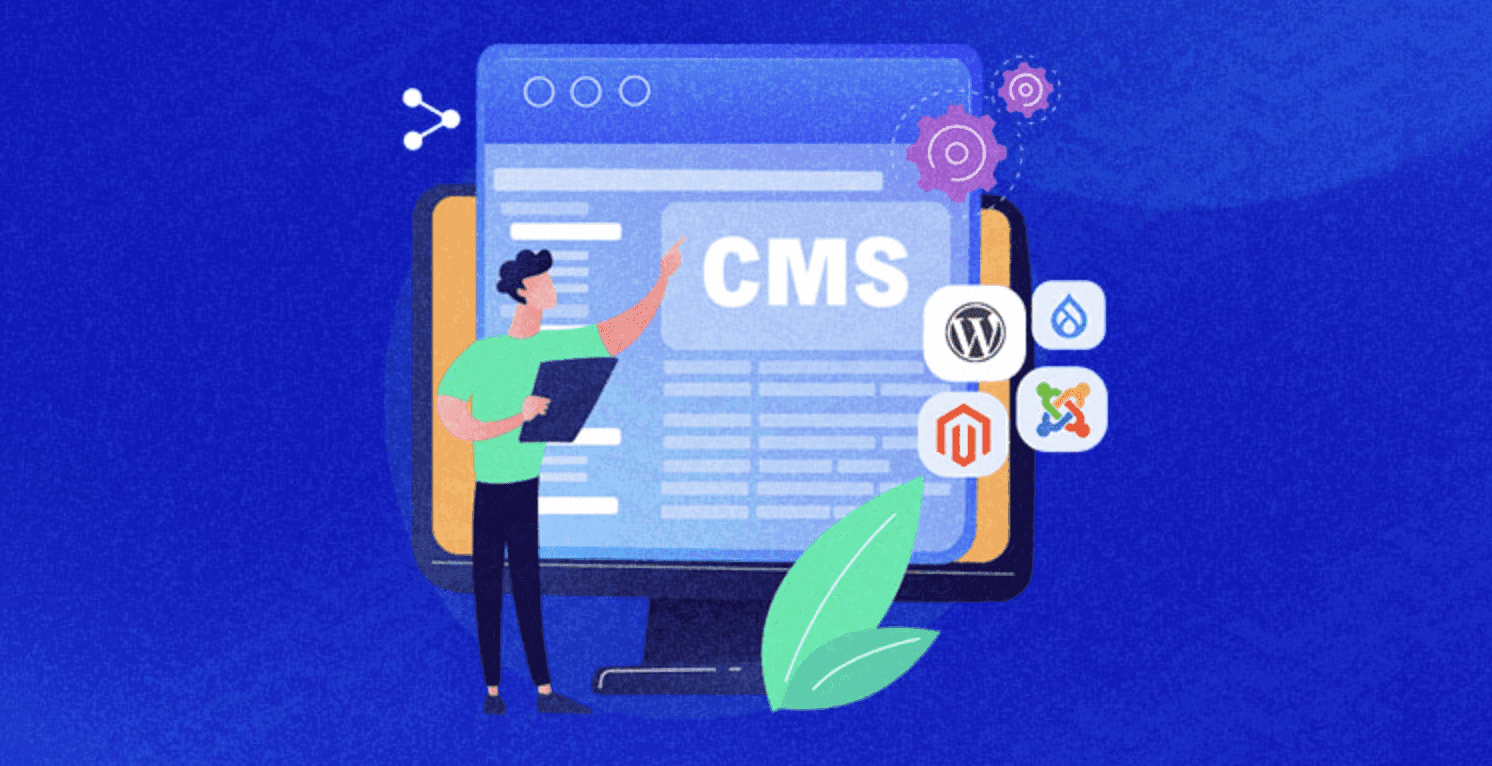
In the year 2025, digital transformation keep speeding up, with businesses anticipated to provide smooth and integrated omnichannel experiences to maintain their competitiveness.
It is crucial to choose the content management system (CMS) that suits your business needs. Selecting the most suitable CMS for your business can simplify operations related to managing content, improve user interactions significantly, increase efficiency levels substantially, while offering the scalability required for expansion.
Nevertheless, Content management platforms are evolving daily, and yes selecting the one of the most appropriate for your business requirements can feel quite daunting. Here the most certified consulting agencies comes in the picture. The business consulting or Sitecore or any other CMS services consulting agencies can help you to choose the best one.
However, we are here in this blog with the compilation of the best CMS platforms in 2025 for your business, we delve into the foremost CMS platforms of 2025 and assist you in selecting which one corresponds with your objectives. So, let’s get started.
7 Best CMS Platforms 2025
- Sitecore
- WordPress
- Drupal
- Umbraco
- Strapi
- Kentico
- Contentful
Let’s understand these 7 CMS platforms in detail.
Sitecore: An Enterprise DXP with Personalization
Sitecore CMS is one of the most valuable and latest systems for businesses. It continues to be a preferred selection for large-scale enterprises that require deep personalization, sophisticated analytics, and unified digital marketing functionalities. In 2025, Sitecore XM Cloud, along with a composable DXP architecture have augmented flexibility, scalability, and cloud-native advantages.
Why choose Sitecore in 2025?
- Enterprise-grade personalization and content targeting
- Composable DXP architecture for flexibility
- Cloud-native with scalability and high performance
- Deep integrations with CRM, eCommerce, and MarTech platforms
- Best suited for Global enterprises, multi-site brands,and content-rich digital experiences
WordPress: The Most Popular CMS, Evolving for the Future
WordPress continues to be a powerful entity in 2025, serving over 40% of websites around the world. Its adaptable nature, extensive plugin environment, and easy-to-use interface render it perfect for small to medium-sized enterprises. The platform has taken substantial steps towards enhancing security measures, performance efficiency, and integration possibilities.
Why choose WordPress in 2025?
- Intuitive UI for non-technical users
- Extensive theme and plugin options
- Strong community and support
- Enhanced block editor (Gutenberg) capabilities
- Best suited for Blogs, corporate websites, small e-commerce stores, and marketing sites
Drupal: Robust and Secure for Enterprise-Grade Solutions
Drupal remains a favored CMS for intricate, content-loaded websites that require custom workflows and permissions. By 2025, governments, universities, and big organizations will still prefer using Drupal because of its stable and flexible nature.
Why choose Drupal in 2025?
- Advanced content modeling and taxonomy
- Built-in multilingual support
- Granular user permissions and access controls
- Enhanced performance and caching mechanisms
- Best suited for Enterprise websites, higher education, government portals, and large-scale content-driven platforms
Umbraco: Open-Source CMS for Custom, Scalable Projects
Umbraco grows increasingly popular with businesses seeking a .NET-based, adaptable and safe CMS solution. The platform has enhanced its editing experience, content permissions, and performance in the launch of Umbraco 16.
Why choose Umbraco in 2025?
- Clean, customizable editing interface
- Seamless integration with the Microsoft stack
- Headless capabilities and strong API support
- Active developer community and commercial support
- Best suited for Mid to large enterprises, custom .NET applications, and content-heavy corporate websites
Strapi: The Headless CMS Leading the API-First Revolution
As the norm for omnichannel content delivery shifts towards headless architecture, Strapi emerges as a prominent open-source headless CMS. It provides complete adaptability for developers and those who create content, rendering it a superb selection for contemporary web and mobile applications.
Why choose Strapi in 2025?
- API-first, headless structure
- Easy content modeling and role-based access
- Fully customizable with plugins and extensions
- Works with any front-end framework (React, Vue, Angular)
- Best suited for SaaS products, mobile apps, omnichannel content delivery, and decoupled websites
Kentico: All-in-One DXP for Enterprises
Kentico declares itself as a Digital Experience Platform (DXP), providing sophisticated marketing, personalization, and commerce functionalities within its CMS structure. In the year 2025, Kentico Xperience 1,3 along with newer versions present abundant features for businesses aiming to unify their digital strategies.
Why choose Kentico in 2025?
- Integrated digital marketing tools
- Enterprise-level security and performance
- Scalable architecture with cloud support
- Great support and partner ecosystem
- Best suited for Enterprises, marketers, e-commerce,and digital-first brands
Contentful: Cloud-Native Headless CMS for Modern Teams
Contentful remains a frontrunner among cloud-native headless CMS platforms. Emphasizing agility and speed, Contentful is relied upon by businesses that require structured content across various digital channels.
Why choose Contentful in 2025?
- High-performance API delivery
- Structured content model for reuse
- Enterprise features like localization and workflow
- Strong developer tools and integrations
- Best suited for Multi-channel content strategy, enterprise-level content delivery, and app-first businesses
Choosing the Right CMS for Your Business
When deciding on the best CMS for your business in 2025, consider the following factors discussed below. This consideration helps you to choose the best suitable CMS for your business.
- Are you a startup, small to medium business (SMB), or an enterprise?
- Each platform provides varying degrees of complexity.
- Do you possess an internal team to handle development, or are you in need of a system that is more user-friendly?
- Content Strategy: Are you delivering content across multiple platforms?
- Consider headless options for flexibility. Growth plan.
- Choose a CMS that can scale with your digital ambitions.
- Security & Compliance: Especially critical for finance, healthcare, and government sectors.
- Budget: Open-source platforms may reduce licensing cost,s but consider total cost of ownership (TCO), including support and maintenance.
Conclusion
In 2025, the CMS terrain presents a diverse array of platforms designed to meet varying business requirements. Whether one considers adaptable open-source tools or enterprise-level digital experience platforms, making a decision hinges on harmonizing technology with your strategic objectives.
Whether you are building your new website or revamping an existing one, your digital presence will not need to get compromised. However, choosing the appropriate CMS is a fundamental choice for your business. Whatever thought is in your mind, if you choose to go with the Sitecore development services experts or any other partner, reaching them is surely helpful to you to decide which CMS is best for your business.
Consider your priorities, anticipate growth, and do not shy away from consulting with seasoned CMS partners to make the most educated decision.
If uncertainty plagues you regarding where to begin, our team can assist in assessing, implementing, or transitioning to the most suitable CMS platform for your enterprise.
Let’s build something scalable, secure, and future-ready – together.
Still not sure? Connect now for a more detailed discussion.








